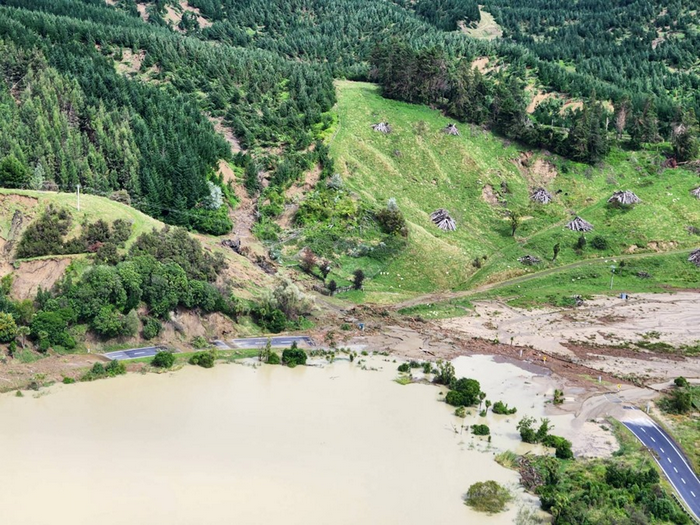Scion supports sustainable forestry land use inquiry for Tairāwhiti and Wairoa
24 February 2023
For immediate release
Yesterday's announcement of a Ministerial inquiry into land use practices and the impact of slash in Tairāwhiti and Wairoa will be an important step to support communities adapt to the effects of climate change, provided it delivers an implementation plan supported by Government, says Scion chief executive Dr Julian Elder.
"Scion has been working with government, industry, and local communities to better understand and prepare for the risks that come with managing forests and land use change in highly erodible land under a changing climate.
"It is clear that our forestry and land management practices in high-risk areas will need to change. How that transition can be implemented, while supporting local communities, needs to be a key focus of the inquiry. We look forward to sharing insights from that work with the inquiry panel so we can help accelerate solutions," says Elder.
"Slash continues to be a factor in the effects of these weather events. Industry has been changing its practices to mitigate this risk. That can be further improved by evidence that needs to be collected across the region from these extreme weather events, including as part of the inquiry. Landowners need good decision-making tools, and they are likely to need support to make the transition to new land uses or different land use practices.
“Scion has also been working on options to process forestry waste on-site. In the future, it will be possible to use portable 'mini factories' to process forestry waste on-site to create new high-value products from the slash that is currently left behind after forests are felled. In addition to reducing the current slash problems, this approach would also create new jobs for local communities. This distributed manufacturing work needs to be accelerated.
"Climate change is driving an increasingly urgent need for adaptation across land use in regional New Zealand. Our research is helping to inform landowners and central and local government about options they have in an uncertain future," explains Dr Elder.

